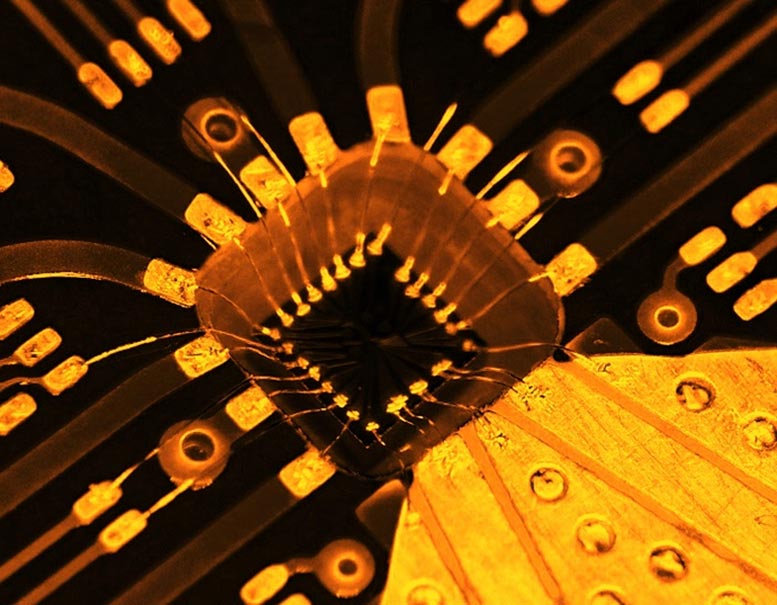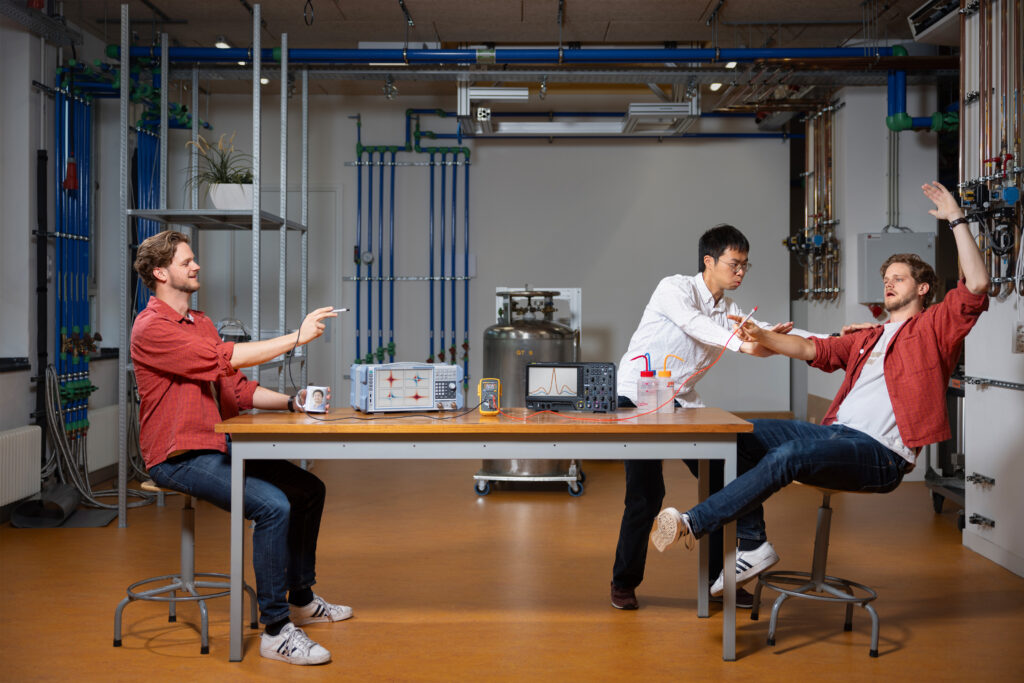Researchers from RIKEN and QuTech—a collaboration between TU Delft and TNO— have achieved a key milestone toward the development of a fault-tolerant quantum computer. They were able to demonstrate a two-qubit gate fidelity of 99.5 percent—higher than the 99 percent considered to be the threshold for building fault-tolerant computers—using electron spin qubits in silicon, which are promising for large-scale quantum computers as the nanofabrication technology for building them already exists.
The team decided to experiment with a quantum dot structure that was fabricated by nanofabrication on a strained silicon/silicon germanium quantum well substrate, using a controlled-NOT (CNOT) gate. In previous experiments, the gate fidelity was limited due to slow gate speed. To improve the gate speed, they carefully designed the device and tuned the device operation condition by voltages applied to gate electrodes to combine established fast single-spin rotation technique using micromagnets and a large two-qubit coupling. This allows them to enhance the gate speed by a factor of 10 compared to the previous works. Interestingly, it was previously believed the increasing gate speed would always lead to better fidelity, but they found that there was a limit, and that beyond that the increasing speed actually made the fidelity worse.
Through the work, they discovered that a property called the Rabi frequency—a marker of how the qubits change states in response to an oscillating field—is key to the performance of the system, and they found a range of frequencies for which the single-qubit gate fidelity was 99.8 percent and the two-qubit gate fidelity was 99.5 percent, clearing the required threshold.
Through this, they demonstrated that they could achieve universal operations, meaning that all the basic operations that constitute quantum operations, consisting of a single qubit operation and a two-qubit operation, could be performed with the gate fidelities above the error correction threshold.
To test the capability of the new system, the researchers implemented a two-qubit Deutsch-Jozsa algorithm and the Grover search algorithm. On both algorithms output correct results with a high fidelity of 96-97%, demonstrating that silicon quantum computers can perform quantum calculations with high accuracy. (SciTechDaily)
The work has been published in Nature.


